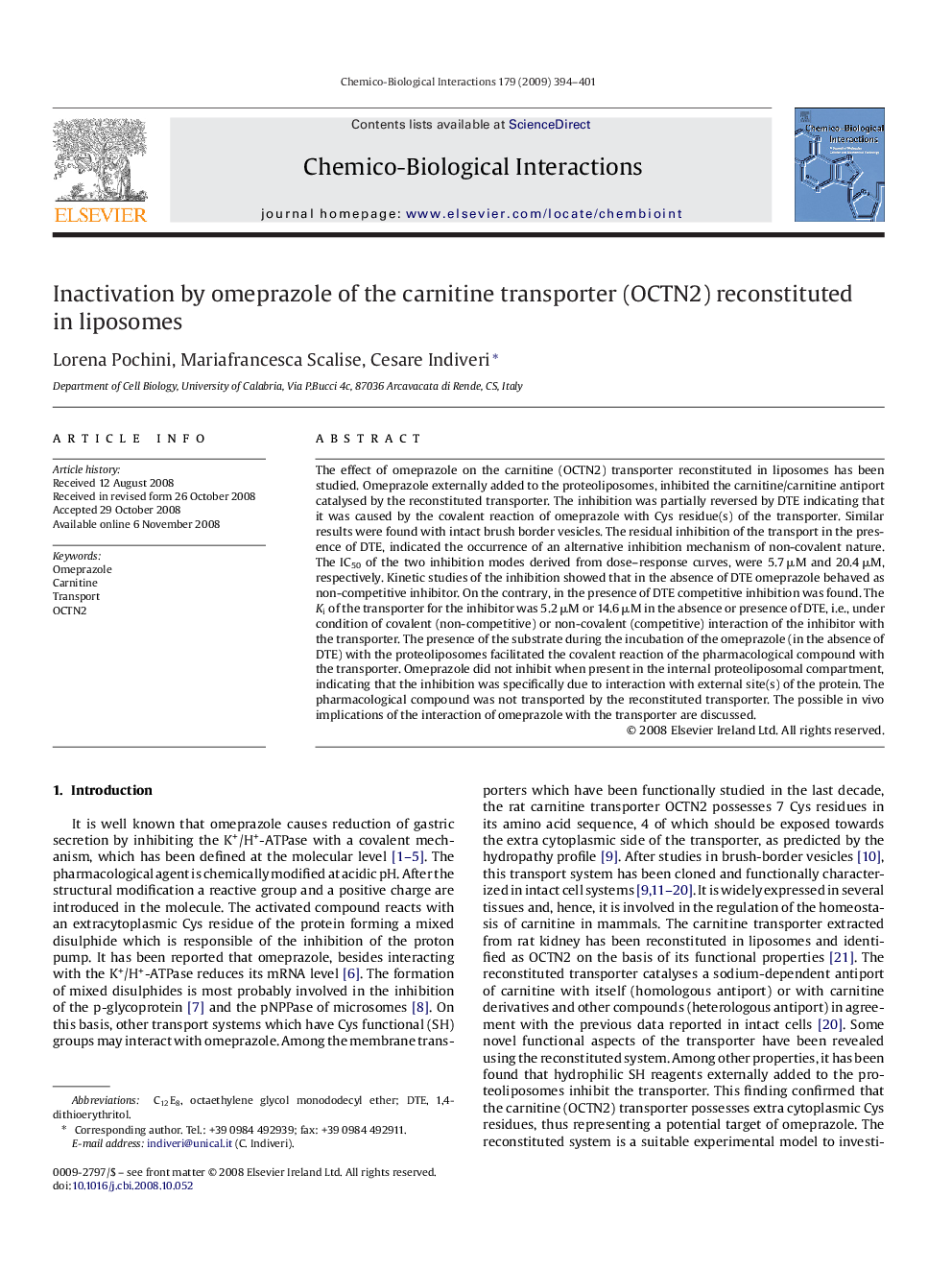| Article ID | Journal | Published Year | Pages | File Type |
|---|---|---|---|---|
| 2582250 | Chemico-Biological Interactions | 2009 | 8 Pages |
The effect of omeprazole on the carnitine (OCTN2) transporter reconstituted in liposomes has been studied. Omeprazole externally added to the proteoliposomes, inhibited the carnitine/carnitine antiport catalysed by the reconstituted transporter. The inhibition was partially reversed by DTE indicating that it was caused by the covalent reaction of omeprazole with Cys residue(s) of the transporter. Similar results were found with intact brush border vesicles. The residual inhibition of the transport in the presence of DTE, indicated the occurrence of an alternative inhibition mechanism of non-covalent nature. The IC50 of the two inhibition modes derived from dose–response curves, were 5.7 μM and 20.4 μM, respectively. Kinetic studies of the inhibition showed that in the absence of DTE omeprazole behaved as non-competitive inhibitor. On the contrary, in the presence of DTE competitive inhibition was found. The Ki of the transporter for the inhibitor was 5.2 μM or 14.6 μM in the absence or presence of DTE, i.e., under condition of covalent (non-competitive) or non-covalent (competitive) interaction of the inhibitor with the transporter. The presence of the substrate during the incubation of the omeprazole (in the absence of DTE) with the proteoliposomes facilitated the covalent reaction of the pharmacological compound with the transporter. Omeprazole did not inhibit when present in the internal proteoliposomal compartment, indicating that the inhibition was specifically due to interaction with external site(s) of the protein. The pharmacological compound was not transported by the reconstituted transporter. The possible in vivo implications of the interaction of omeprazole with the transporter are discussed.
